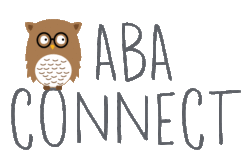Enhancing Parent and Teacher Collaboration
As we start a new school year, building a positive relationship with your children’s teachers is an essential component for success. Research shows that when parents and teachers work together, students benefit greatly. Overall, students attend school more regularly, perform better on tests, earn higher grades, have better behavior, and show more positive attitudes toward themselves and school. Yet, collaboration between parents and teachers is not always an easy process! Effective collaboration goes beyond contributing snacks to the classroom parties, and focuses on proactive and open communication. Whether your child is struggling in school, or you simply want to maintain successful strategies, the following are some tips for enhancing parent and teacher collaboration:
- Establish a Shared Goal. Parents and teachers have the same goal: they want the best for the student. As early in the year as possible, it can be helpful to communicate this in an explicit way. You should feel encouraged to seek out communication with your child’s teachers. Open House or Back to School Night is a great opportunity to introduce yourself, establish your goals to work as a team, and let the teacher know how to best reach you.
- Communicate Proactively. Don’t wait for your teacher to contact you! You are the expert on your child, and thus can be very helpful in providing insight into what works best. In addition, you can be vital in communicating things happening at home that might affect your child’s behavior. A pending divorce, serious illness, health problems (e.g., allergies, asthma), a change or addition of a medication, or birth of a new baby are all examples of things that can help teachers better understand and support your child.
- Establish Expectations Early. Don’t wait for the phone call home! Ask if your child’s behavior is in accordance with classroom expectations. Does my child follow rules without difficulty? Is my child meeting expectations for learning? Does my child seem to have friends in the classroom? What are my child’s strengths? If concerns surface, find out how the teacher deals with problems and how you might be able to reinforce appropriate behavior at home. Consistent behavior management strategies will provide clear expectations for your child and help establish collaboration between home and school.
- Accentuate the Academics. Ask if there are activities you can provide at home to help your child practice the skills learned at school. What type of books should you read to or with your child? Are there games or activities to help practice the newly introduced math facts? What is the best way to help your child practice spelling? How can you make these activities fun? This is where teachers’ expertise can be valued and supported!
- Offer Assistance. Although cookies and PTA meetings are not sufficient to establish an effective collaboration, they certainly can help! Volunteering can take many forms—so think outside the box! Some parents’ schedules allow them to come to help out in a classroom on a weekly or monthly basis. Other parents may want to seek out opportunities that occur outside the regular classroom hours. Simply communicating your willingness to help out can establish a collaborative and supportive relationship with your child’s teacher and school.
- Strike a Balance. As with everything in life—the key to a successful parent-teacher collaboration is balance! While teachers greatly appreciate parents who are proactive and involved in their child’s educational experience, it is important to keep in mind that your child’s teacher is establishing and maintaining these relationships with many other families! Be proactive, persistent, but patient in your communication. Find out what is the best way to communicate with your child’s teacher, and maintain reasonable expectations for their time. In addition, keep in mind what is best for your child in terms of your participation in their educational experience. Sometimes it is best to volunteer in another classroom, if your presence might be distracting to your child. Again, open communication with your child’s teacher can be key to establishing and maintaining a helpful collaboration!



Great post! We adore this blog and This information is very good.